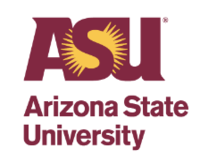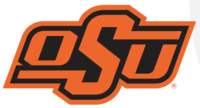Recreational therapy is a rewarding field that blends creativity, therapeutic techniques, and compassion to enhance the well-being of individuals with physical, emotional, and mental health challenges. Whether you are passionate about helping people through recreational activities or are looking for a career in healthcare that combines holistic and clinical approaches, pursuing a degree in recreational therapy can be a great option. This guide will walk you through everything you need to know about recreational therapy degrees, career paths, and the skills required to succeed in this dynamic profession.

The University of Toledo
Recreational Therapy BS
What is Recreational Therapy?
Recreational therapy, also known as therapeutic recreation, is a specialized form of therapy that uses various activities such as art, music, sports, and games to help individuals with disabilities, injuries, or chronic illnesses. The goal is to improve their physical, emotional, cognitive, and social well-being. Recreational therapists work with patients to design and implement individualized treatment plans that align with each person’s interests and therapeutic needs.
Role of a Recreational Therapist
Recreational therapists play an essential role in the healthcare and rehabilitation landscape. They assess patients’ needs, plan and coordinate therapeutic activities, and monitor progress. Some of their responsibilities include:
- Conducting assessments to identify patients’ strengths, needs, and preferences.
- Developing treatment plans using a variety of recreational modalities.
- Implementing activities like arts and crafts, exercise, community outings, and animal-assisted therapy.
- Documenting patient progress and adjusting treatment plans as needed.
Recreational therapists work in diverse settings, including hospitals, rehabilitation centers, assisted living facilities, schools, and community centers. They collaborate with other healthcare professionals, including physical therapists, occupational therapists, and social workers, to provide comprehensive care.

East Carolina University
Recreational Therapy BS
Why Choose a Degree in Recreational Therapy?
There are several compelling reasons to choose a degree in recreational therapy:
- Growing Demand: As healthcare continues to evolve, the demand for holistic and non-pharmacological treatments is rising. Recreational therapy is becoming an integral part of patient care in various settings.
- Impact on Patient Well-Being: Recreational therapists have a profound impact on improving the quality of life of patients, helping them regain skills, boost confidence, and engage in meaningful activities.
- Personal Fulfillment: Helping others overcome obstacles and improve their well-being through therapeutic activities can be a highly rewarding career.
Types of Recreational Therapy Degrees
Associate Degree in Recreational Therapy
An associate degree in recreational therapy is typically a two-year program that introduces students to the fundamentals of therapeutic recreation. The curriculum includes courses in psychology, human anatomy, and therapeutic techniques. Graduates of an associate program can work as activity coordinators or aides in healthcare facilities, but they may need further education for advanced roles.

LaGuardia Community College
Therapeutic Recreation, AS
Bachelor’s Degree in Recreational Therapy
A bachelor’s degree in recreational therapy is the minimum requirement for becoming a Certified Therapeutic Recreation Specialist (CTRS). This four-year program includes core courses such as:
- Therapeutic Recreation Assessment
- Human Anatomy and Physiology
- Psychology of Disability and Illness
- Rehabilitation Techniques and Interventions
The program often includes a mandatory internship or clinical practicum, where students gain hands-on experience in a healthcare setting. Graduates are eligible to sit for the national certification exam and pursue entry-level roles as recreational therapists.

Arizona State University
Recreation Therapy, BS
Master’s Degree in Recreational Therapy
For those looking to advance their careers, a master’s degree in recreational therapy provides in-depth training in clinical practice, research, and leadership. Students can choose specializations such as pediatric therapy, geriatric therapy, or adaptive sports. This degree can open doors to higher-level positions, such as program director or clinical supervisor.

Temple University
Recreational Therapy MS
Doctorate in Recreational Therapy
A doctorate in recreational therapy focuses on research, policy development, and advanced clinical expertise. Graduates often pursue careers in academia, clinical research, or high-level administrative roles. The program typically requires a dissertation or research project and can take 3-5 years to complete.

Clemson University
Parks, Recreation & Tourism Management, Ph.D.
Colleges Offering Recreational Therapy Degrees
There are numerous colleges and universities offering degrees in Recreational Therapy or related fields, such as Therapeutic Recreation. Here’s a list of some prominent institutions in the U.S.:
Here’s a list of colleges offering degrees in recreational therapy and related programs, along with their respective degree levels:
East Carolina University (ECU)
- Degree: Bachelor of Science in Recreational Therapy
- Location: Greenville, NC
- Program Page: https://degrees.ecu.edu/BS/Recreational%20Therapy/
Slippery Rock University of Pennsylvania
- Degree: Bachelor of Science in Recreational Therapy
- Location: Slippery Rock, PA
- Program Page: https://www.sru.edu/academics/colleges-and-departments/cohp/departments/recreational-therapy/programs
University of Toledo
- Degree: BS in Recreational Therapy
- Location: Toledo, OH
- Program Page: https://www.utoledo.edu/programs/undergrad/recreational-therapy
Arizona State University
- Degree: Bachelor of Science in Recreation Therapy
- Location: Tempe, AZ
- Program Page: https://degrees.apps.asu.edu/bachelors/major/ASU00/PPRECTBS/recreation-therapy
Kean University
- Degree: B.A. in Recreational Therapy
- Location: Union, NJ
- Program Page: https://www.kean.edu/academics/programs/recreational-therapy
Lehman College
- Degree: Bachelor of Science in Therapeutic Recreation
- Location: Bronx, NY
- Program Page: https://www.lehman.edu/academics/degree-maps/documents/Therapeutic_Recreation_BS_Final.pdf
University of Utah
- Degree: Masters in Recreational Therapy
- Location: Salt Lake City, UT
- Program Page: https://health.utah.edu/occupational-recreational-therapies/degrees/msrt
Western Carolina University
- Degree: Bachelor of Science in Therapeutic Recreation
- Location: Cullowhee, NC
- Program Page: https://www.wcu.edu/learn/departments-schools-colleges/HHS/healthsci/rth/index.aspx

Northern Arizona University
Recreational Therapy, Graduate Certificate
Accreditation and Certification for Recreational Therapy Programs
Importance of Accreditation
Choosing an accredited recreational therapy program is crucial. Accreditation ensures that the program meets established standards of quality and adequately prepares students for professional practice. The primary accrediting body for recreational therapy programs is the Council on Accreditation of Recreational Therapy Education (CARTE).
Certification Requirements
To become a Certified Therapeutic Recreation Specialist (CTRS), candidates must meet the requirements set by the National Council for Therapeutic Recreation Certification (NCTRC). This includes:
- Completion of a bachelor’s degree in recreational therapy from an accredited program.
- A minimum of 560 hours of supervised internship experience.
- Passing the NCTRC certification exam.
Certification is a key credential for securing employment and advancing in the field.

UNC – Wilmington
Recreation Therapy, B.A.
Core Curriculum and Coursework
Recreational therapy programs combine classroom instruction with practical training. Below is a typical breakdown of the core curriculum:
Foundational Courses
- Introduction to Recreational Therapy
- Psychology of Human Behavior
- Medical Terminology
- Human Growth and Development
Therapeutic Techniques and Interventions
Students learn to use various interventions, such as:
- Art and Music Therapy: Using creative modalities to facilitate emotional expression.
- Sports and Exercise Therapy: Promoting physical health and teamwork.
- Animal-Assisted Therapy: Using pets to enhance patient interaction and reduce anxiety.
Clinical Practice and Internships
Hands-on training is a vital component of recreational therapy degrees. Most programs require students to complete a supervised internship in a healthcare or community setting. This experience helps students develop clinical skills and gain practical insights into patient care.

Aurora University
Therapeutic Recreation (BS)
Skills Developed in Recreational Therapy Programs
Recreational therapy programs offer a comprehensive platform for students to cultivate a diverse range of skills crucial for their professional development. Let’s delve deeper into the key areas where students enhance their expertise:.
Therapeutic Interventions
- Recreational therapy programs focus on honing skills related to a variety of therapeutic interventions.
- Students delve into techniques like art therapy, music therapy, drama therapy, and even adventure therapy.
- By mastering these modalities, students learn to leverage creative and engaging methods to improve the mental, emotional, and physical well-being of their clients.
Assessment and Evaluation Techniques
- An integral part of recreational therapy programs is equipping students with the ability to conduct thorough assessments and evaluations.
- Students learn to perform comprehensive assessments to identify clients’ strengths, challenges, and goals.
- Moreover, they develop proficiency in evaluating the effectiveness of therapeutic interventions, ensuring that interventions are tailored to meet the unique needs of each individual.
Program Planning and Implementation
- Program planning and implementation stand out as vital components of a recreational therapist’s skill set.
- Students learn the art of designing and executing recreational activities and programs that cater to a diverse range of populations.
- They gain insights into adapting programs to address the physical, emotional, and cognitive requirements of clients, fostering an inclusive and impactful approach to therapy.
Interdisciplinary Collaboration
- Apart from the core skills mentioned above, students in recreational therapy programs also foster expertise in interdisciplinary collaboration.
- They learn to work effectively with healthcare professionals, educators, and social workers to ensure holistic care for their clients.
- This collaborative approach enhances the overall quality of care and widens the scope of therapeutic interventions.
Research and Evidence-Based Practice
- In the ever-evolving field of recreational therapy, students are encouraged to engage in research and adopt evidence-based practices.
- By staying abreast of the latest research findings and best practices, students develop a solid foundation for making informed decisions and delivering high-quality care to their clients.
Cultural Competence and Diversity
- Recreational therapy programs emphasize the importance of cultural competence and diversity awareness.
- Students learn to respect and celebrate individual differences, integrating cultural considerations into their therapeutic approaches.
- This cultural sensitivity enables students to effectively connect with clients from various backgrounds and create a welcoming and inclusive therapeutic environment.
Recreational therapy programs offer a rich learning experience, equipping students with a diverse skill set that enables them to make a profound impact in the lives of their clients. Through a blend of theoretical knowledge and practical application, students emerge as competent and compassionate recreational therapists ready to address the evolving needs of diverse populations.

Regis College
BS in Therapeutic Recreation
Benefits of Pursuing a Recreational Therapy Degree
Enhanced Patient Care
Pursuing a degree in recreational therapy offers a multitude of benefits, with one of the key advantages being the enhancement of patient care. Recreational therapists possess the specialized skills and knowledge required to integrate recreational activities into treatment plans effectively. This integration plays a pivotal role in improving the overall patient care experience across physical, emotional, and mental well-being dimensions. By engaging patients in tailored recreational activities, therapists can facilitate healing, boost morale, and foster a holistic approach to healthcare.
Diverse Job Opportunities
Aside from the profound impact on patient care, a recreational therapy degree unlocks a world of diverse job opportunities. Graduates are equipped to work in a variety of settings, including hospitals, rehabilitation centers, schools, nursing homes, and community centers. The versatility of this degree enables professionals to cater to different populations, such as children, the elderly, individuals with disabilities, and mental health patients. This diversity not only enriches the therapist’s experience but also contributes to a fulfilling and dynamic career path that evolves with each unique interaction.
Contribution to Community Well-being
Furthermore, individuals with a recreational therapy background play a vital role in enhancing community well-being. By organizing and leading recreational programs, therapists contribute to the social fabric of neighborhoods, promote inclusivity, and create spaces for individuals to connect and thrive. This sense of community engagement fosters a sense of belonging and support, enriching the lives of both participants and the broader community.
Advocacy and Empowerment
Lastly, a recreational therapy degree empowers professionals to advocate for the importance of recreational interventions in healthcare. By raising awareness about the transformative power of recreational activities, therapists become champions for holistic care approaches and advocates for the integration of these practices in mainstream healthcare systems. Their advocacy efforts not only benefit individual patients but also contribute to a paradigm shift towards more comprehensive and patient-centered care models.

University of Utah
BS in Recreational Therapy
Skills Needed to Succeed in Recreational Therapy
To thrive in recreational therapy, students should develop the following skills:
- Interpersonal and Communication Skills: Building rapport with patients and families.
- Creativity and Adaptability: Designing activities that cater to diverse needs and interests.
- Understanding of Human Behavior and Development: Recognizing how different conditions affect individuals.
- Clinical and Assessment Skills: Evaluating patient progress and making data-driven decisions.
- Leadership and Advocacy: Promoting the role of recreational therapy in healthcare.
Career Paths in Recreational Therapy
Job Titles and Roles
Recreational therapy graduates can pursue various roles, such as:
- Certified Therapeutic Recreation Specialist (CTRS)
- Activities Coordinator
- Rehabilitation Specialist
- Program Director
Recreational Therapist Roles
One of the primary career paths for graduates in recreational therapy is working as a recreational therapist. Recreational therapists play a crucial role in enhancing the lives of individuals with disabilities, injuries, or illnesses by utilizing a variety of activities and interventions to improve their physical, emotional, and mental well-being. They work closely with clients to develop personalized treatment plans that focus on improving functional abilities, enhancing social skills, and promoting overall wellness. Recreational therapists can be found working in diverse settings such as hospitals, rehabilitation centers, nursing homes, mental health facilities, and community centers.
Community Program Coordinator Positions
Apart from working as recreational therapists, graduates in recreational therapy can explore opportunities as community program coordinators. In these roles, individuals collaborate with community organizations, schools, and government agencies to design and implement recreational programs tailored to individuals of all ages and abilities. These programs are aimed at fostering a sense of community, promoting health and wellness, and facilitating social inclusion. Community program coordinators often organize events, workshops, and outings that cater to the specific needs and interests of the participants, contributing to the overall well-being of the community.

Slippery Rock University
Undergraduate Degree in Recreational Therapy
Hospital and Clinical Settings
Additionally, recreational therapy graduates can pursue careers in hospital and clinical settings, where they work alongside multidisciplinary healthcare teams to provide holistic care to patients. By incorporating recreational activities into treatment plans, these professionals contribute to the physical, emotional, and psychological recovery of individuals undergoing medical treatments. They assist patients in regaining strength, improving mobility, and enhancing their quality of life post-surgery, injury, or illness. Moreover, recreational therapists in hospital settings often collaborate with other healthcare professionals to ensure comprehensive and individualized care for each patient.
Specialized Areas of Practice
Beyond the traditional roles, recreational therapy graduates can specialize in niche areas such as adaptive sports programs, animal-assisted therapy, or therapeutic recreation for specific populations like children with autism or veterans with PTSD. By honing their expertise in these specialized areas, professionals can make a significant impact on the lives of individuals facing unique challenges and tailor interventions to meet their distinct needs.
Research and Advocacy
Furthermore, individuals with a background in recreational therapy can contribute to the field through research and advocacy. By conducting studies on the efficacy of recreational interventions, advocating for policy changes that support recreational therapy services, and raising awareness about the benefits of recreational activities, graduates can drive positive change and promote the integration of recreational therapy into mainstream healthcare practices.

Clemson University
Bachelor of Science (B.S.) Recreational Therapy
How to Choose the Right Recreational Therapy Program
When selecting a recreational therapy program, consider the following factors:
- Accreditation: Ensure the program is accredited by CARTE.
- Curriculum and Specializations: Look for a curriculum that aligns with your career goals.
- Internship Opportunities: Consider programs that offer strong clinical placements.
- Program Flexibility: Explore online and part-time options if needed.
Top Schools Offering Recreational Therapy Degrees
Some of the top programs include:
- Temple University: Offers a well-established bachelor’s and master’s degree in recreational therapy.
- University of North Carolina at Greensboro: Accredited by CARTE with a strong focus on research and clinical practice.
- East Carolina University: Known for its innovative curriculum and clinical partnerships.

Western Piedmont Community College
A.S. degree in Recreational Therapy
Financial Aid and Scholarships for Recreational Therapy Students
Types of Financial Aid
Students can access various financial aid options, including:
- Federal and State Grants: Such as the Pell Grant and state-specific aid.
- Student Loans: Federal loans with income-driven repayment options.
- Work-Study Programs: On-campus employment opportunities for eligible students.
Scholarships Specific to Recreational Therapy
- ATRA Scholarships: Offered by the American Therapeutic Recreation Association.
- NCTRC Scholarships: For students pursuing certification.
Tips for Finding Financial Aid
- Start by filling out the Free Application for Federal Student Aid (FAFSA).
- Research scholarships specific to recreational therapy and healthcare fields.

Oklahoma State University
Bachelor of Science in Recreational Therapy (BS)
Related Degrees and Career Alternatives
If you’re considering a degree in recreational therapy, you might also be interested in related fields such as:
- Occupational Therapy: Focuses on helping individuals perform daily tasks.
- Physical Therapy: Aims to restore physical function through exercise and rehabilitation.
- Psychology and Counseling: Provides therapeutic support for mental health conditions.
- Kinesiology and Exercise Science: Studies the science of human movement and fitness.
Takeaways
Pursuing a degree in recreational therapy is a fulfilling and impactful career choice. By using therapeutic activities, recreational therapists can transform lives and contribute to the holistic well-being of individuals across various settings. If you are interested in combining creativity, compassion, and clinical skills, a career in recreational therapy could be the perfect fit for you. Explore degree programs, certification options, and career paths to start your journey in this rewarding field.

University of South Alabama
Bachelor of Science in Recreational Therapy
